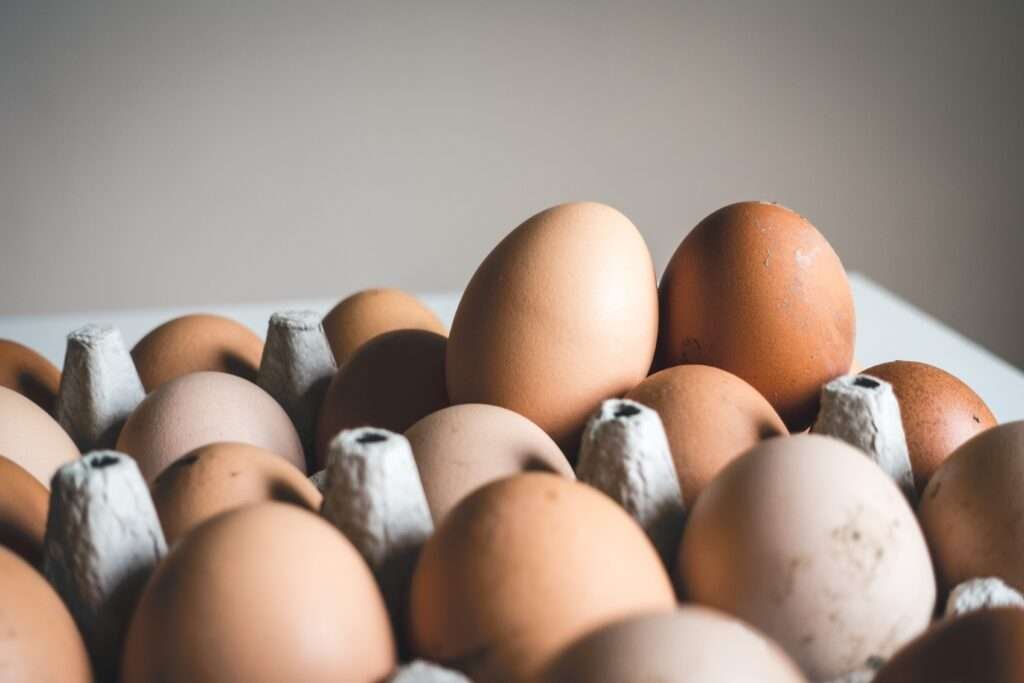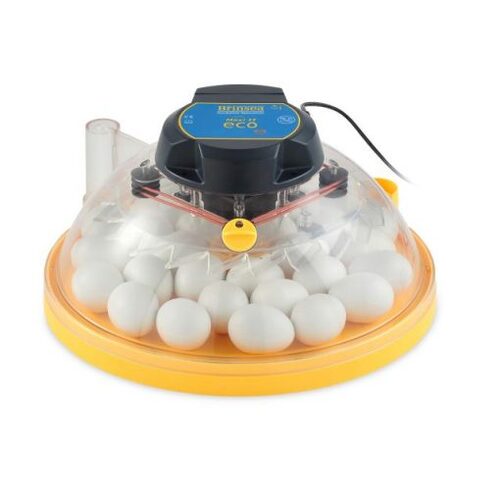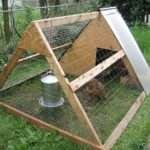Embarking on the journey of hatching chicks from eggs is a thrilling and rewarding endeavor. Whether you’re a seasoned poultry enthusiast or a curious beginner, the process of witnessing the transformation from egg to fluffy chick is a captivating experience. As you delve into the world of hatchling success, it’s crucial to make an informed judgement when choosing the best egg incubator, the heart of the hatching process. In this guide, we’ll explore the types of egg incubators available on the market, essential features to consider, cost factors, and even an alternative method using broody hens. By the end, you’ll be equipped with the knowledge to make a confident decision tailored to your needs.
Understanding Types of Egg Incubators: Options at Your Fingertips
Before diving into the features for choosing the best egg incubator, let’s explore the different types available. Egg incubators come in various shapes, sizes, and designs, each catering to different needs and preferences.
Tabletop Incubators: Compact and Convenient
Tabletop incubators are a popular choice for beginners and hobbyists. These portable units are designed to fit on a table or countertop, making them space-efficient. Their capacity ranges from a dozen to a couple of dozen eggs, perfect for those looking to start with a manageable batch. Tabletop incubators offer simplicity and ease of use, making them an excellent entry point for hatchling enthusiasts.
Cabinet Incubators: Scalability and Precision
For those aiming to hatch larger quantities of eggs, cabinet incubators are an appealing option. These units come with higher egg capacities and offer precise temperature and humidity control. Cabinet incubators often have separate compartments for egg trays, allowing for better organization and larger hatchling batches. While they require more space, cabinet incubators provide a sophisticated environment for a successful hatch.
Portable Incubators: Flexibility on the Go
If you’re seeking flexibility and portability, portable incubators are a convenient choice. These units are designed for those who want to move their incubators to different locations or even take them on the road. Portable incubators often feature battery options or car adapters, making them suitable for remote locations or during power outages. This type is favored by those who value versatility and the ability to hatch chicks wherever they go.
In the upcoming sections, we’ll delve into the features that distinguish egg incubators and ensure optimal conditions for hatching. Whether you’re drawn to a tabletop, cabinet, or portable incubator, understanding these features will guide you toward selecting the best match for your hatchling goals.
Essential Features when Choosing the Best Egg Incubator
Choosing the right egg incubator goes beyond picking a specific type; it involves considering the features that contribute to a successful hatch. Several key elements impact the outcome of your hatching journey, ensuring healthy chicks make their debut into the world.
Temperature Control: The Heartbeat of Incubation
Temperature plays a vital role in egg incubation, affecting embryo development and overall hatchling health. Look for an incubator equipped with accurate temperature controls that can maintain a consistent environment. Digital thermostats are recommended for their precision and ease of monitoring.
Humidity Management: Balancing Moisture Levels
Proper humidity control is essential for egg viability and healthy embryo growth. A quality egg incubator should provide the ability to adjust humidity levels based on the incubation stage. Some models feature built-in humidity sensors and automated humidity control for hassle-free management.
Automatic Egg Turning: Mimicking Nature’s Touch
In nature, mother hens gently turn their eggs to ensure uniform heat distribution and embryo development. Look for an incubator with an automatic egg-turning feature that replicates this process. Automatic turning promotes healthy development and saves you from manually rotating each egg multiple times a day.
Ventilation: Fresh Air for Healthy Chicks
Proper ventilation prevents the buildup of harmful gases within the incubator. Adequate airflow ensures a steady exchange of fresh air and helps prevent moisture accumulation. A well-ventilated incubator provides chicks with a healthy environment during their crucial development stages.

Manual vs. Automatic Egg Turning: Weighing the Options
When it comes to egg turning, hatchling success hinges on whether you choose to turn the eggs manually or opt for automatic egg-turning technology. Each method offers distinct advantages, and your choice will depend on your level of involvement, desired outcome, and the convenience you seek.
Automatic Egg Turning: Convenience and Consistency
Automatic egg-turning mechanisms simulate the gentle rolling motion that eggs experience when a mother hen turns them. This technology ensures that all eggs receive even heat distribution, reducing the risk of developmental abnormalities. Automatic turning minimizes your daily involvement, providing a consistent turning routine that’s crucial for optimal hatchling development.
Benefits of Automatic Egg Turning:
- Consistent heat distribution and development.
- Reduced hands-on intervention.
- Suitable for busy schedules.
- Mimics natural incubation conditions.
Manual Egg Turning: A Hands-On Approach
Manual egg turning offers a more involved approach to incubation, allowing you to personally engage with the eggs. While it requires consistent attention, some hatchling enthusiasts prefer the hands-on experience and the deeper connection it fosters with the hatching process. Manual turning can also be a practical choice for those who enjoy closely monitoring each egg’s development.
Benefits of Manual Egg Turning:
- Personal involvement and connection.
- Flexibility in turning schedule.
- Opportunity for close observation.
- Hands-on learning experience.
Choosing the Right Method for You:
The decision between automatic and manual egg turning depends on your lifestyle, schedule, and level of interaction you desire with the hatching process. If you value convenience and a more hands-off approach, automatic turning might be ideal. On the other hand, if you relish the intimate engagement and flexibility, manual turning may be the better fit.

Calculating the Cost When Choosing the Best Egg Incubator
As you embark on your hatchling journey, understanding the financial aspect of purchasing an egg incubator is crucial. The cost varies based on factors such as the type of incubator, brand reputation, capacity, and included features. Let’s explore the potential costs associated with different types of incubators.
Tabletop Incubators: Budget-Friendly Entry Point
Tabletop incubators are often the most budget-friendly option, making them a popular choice for beginners. Prices can range from $50 to $200, depending on the brand and features. While they offer smaller egg capacities, they provide an excellent starting point for those eager to explore the world of egg incubation.
Cabinet Incubators: Scaling Up and Investing More
Cabinet incubators offer larger capacities and advanced features, making them suitable for those aiming to hatch a significant number of eggs. Prices for cabinet incubators can range from $300 to $800 or more, depending on capacity and features. While they require a larger initial investment, their precision and capabilities make them a favored choice among serious hatchling enthusiasts.
Portable Incubators: Versatility with a Price Tag
Portable incubators provide flexibility and convenience, particularly for those who need to hatch eggs in various locations. Prices range from $100 to $400, considering their portability features. While these incubators offer mobility, they may come with fewer advanced features compared to cabinet incubators.
Where to Buy Egg Incubators: Retailers and Online Options
Once you’ve decided on the type of egg incubator that suits your needs, the next step is finding a reliable source for your purchase. Egg incubators can be acquired through various channels, providing options to cater to your preferences and convenience.
Local Farm Supply Stores: Personalized Assistance
Local farm supply stores and agricultural retailers often carry a selection of egg incubators. Visiting a physical store allows you to see the products in person, ask questions, and receive personalized assistance from knowledgeable staff. This option is ideal if you prefer hands-on evaluation and expert guidance before making a purchase.
Specialty Poultry Equipment Shops: Tailored Expertise
Specialty shops that focus on poultry equipment and supplies offer a curated range of egg incubators. These shops cater to hatchling enthusiasts and often provide expert advice on selecting the right incubator for your specific goals. Engaging with experts in the field ensures that you make an informed decision aligned with your needs.
Online Retailers: Convenience and Variety
Online shopping offers convenience and a vast array of options at your fingertips. Websites of reputable poultry equipment manufacturers, as well as e-commerce platforms, host a diverse selection of egg incubators. Researching online allows you to read reviews, compare prices, and access a broader range of products. However, be sure to purchase from reputable sellers to ensure product quality and customer service.

Hatching Naturally with Broody Hens: A Low-Intervention Approach
While egg incubators offer precise control and technological assistance, nature provides an alternative way to hatch chicks: through broody hens. Broody hens are those that exhibit a strong desire to incubate and hatch eggs. One popular breed known for its broodiness is the Silkie Bantam.
Silkie Bantam: A Natural Hatchling Guardian
Silkie Bantams are renowned for their gentle nature and strong broodiness. These small, fluffy chickens are excellent surrogate mothers, eagerly incubating and caring for eggs until they hatch. Utilizing a Silkie Bantam as a broody hen can be an appealing choice for those seeking a hands-off and natural approach to hatching.
Benefits of Using Broody Hens:
- Natural incubation and maternal care.
- Less hands-on intervention required.
- Lower investment in equipment.
- Opportunity to witness natural behaviors.
Factors to Consider: Incubator vs. Broody Hens
Deciding between using an incubator or broody hens depends on several factors, including your desired level of involvement, available resources, and goals for the hatch. Both methods have their merits and considerations, and the choice ultimately reflects your preferences and circumstances.
Choosing the best egg incubator
As you navigate the world of egg incubators and hatchling success, you’re empowered with insights into the types of incubators, essential features, cost considerations, and alternative approaches using broody hens. Each option offers a unique path toward the joy of watching chicks emerge from their eggs and embark on their journey of growth. Whether you choose a precise incubator or the natural guardianship of a broody hen, the ultimate goal remains the same: fostering healthy and vibrant chicks that enrich your poultry journey.






